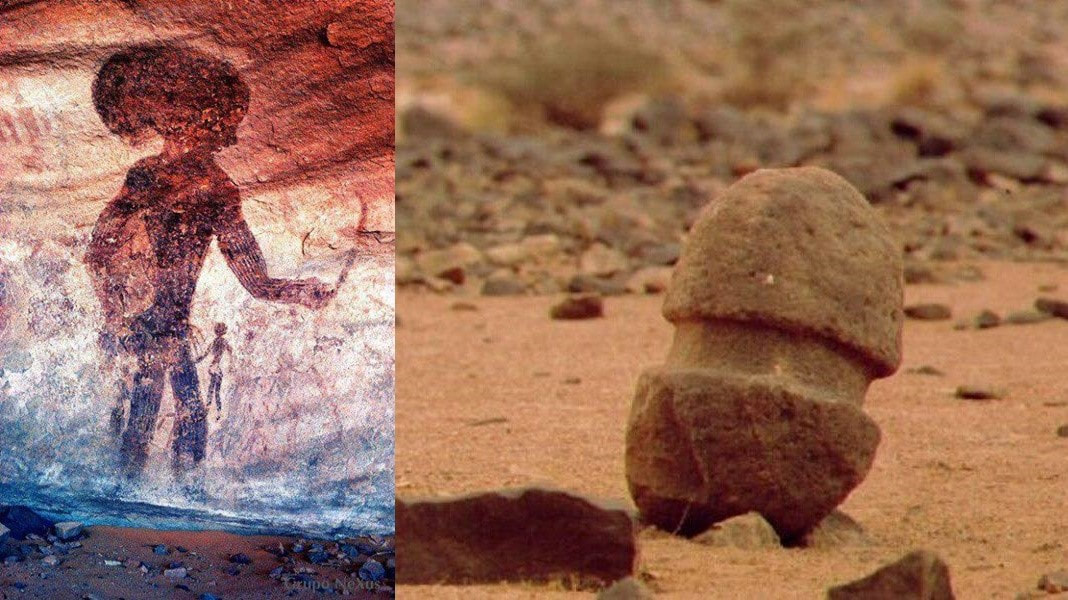

- A tale in the desert 2016 generator#
- A tale in the desert 2016 full#
- A tale in the desert 2016 series#
Secondly, it does not question itself as a generator of appearances.

To me, firstly, that realism solely represents or points out appearances. But, generally speaking, cinema has often chosen ‘realism’ to question the demagoguery of our time. Cinema, of course, offers many ways to do so. What’s worse, almost every day, we are forced to recognise our secular culture’s inability to provide us with a value with which to forcefully resist this violation. Well, we see everywhere in the world today that our sense of religion, reason and the idea of what it is to be tolerant and humane has been grossly violated. Also, The Song of Scorpions is strongly based on folklore. Your earlier Qissa had a fantasy/folklore element. In a long email interview with this writer from Locarno, Singh reveals the inspiration behind the deadly arachnid’s tale. We see the ancient vis-a-vis the modern in Singh’s sojourn of a story, where mysteriously dark ways of men and women twist and turn, playing hide-and seek among the desert dunes. We see crowded cities against the solitude of the vast expanse of sand.
A tale in the desert 2016 full#
The Song of Scorpions is full of such contradictory ideas and imagery that enrich the delight of movie-viewing. Golshifteh Farahani is fantastic singer, says Anup Singh. She discovers her song all over again, and the melody of her voice regains its magic.

But not before long, the realisation of the divinity of love dawns on her. Nooran is bewildered and shattered, and these emotions spur her on to the path of destruction. He gets beaten up, his camels are stolen and his own anger turns into an Othello-like retributory reaction.
A tale in the desert 2016 series#
And, in a quiet sort of way, they push Singh’s story of a poisonous scorpion whose venom can be drawn out of a person only through a song that Nooran learnt to sing from her grandmother (essayed with superb finesse by Waheeda Rehman of Guide).Īadam admires Nooran from a distance, the shimmering sandy hillocks often standing formidably in the way of his love, and when he finally gathers the courage to profess his affection, a series of unfortunate incidents plays spoilsport. Irrfan Khan’s Aadam is a camel dealer.īoth Khan’s Aadam, a camel dealer, and Farahani’s Nooran display a kind of gentleness that will put to shame the loud histrionics of many Indian actors.

I think Singh has this unique ability to fathom the human mind, and in a way, his plot resembles a Shakespearean drama - sans the drama. I was bowled over by the light and shade contrasts he presents - the harshness of the daytime desert rubbing shoulders with the darkness of a night illuminated by the light of a million stars, twinkling away and guiding Singh’s folktale narrated through pain, pathos, love, humiliation, revenge, pardon and forgiveness. The Song of Scorpions is a story set on the undulating golden sands of the Thar Desert in Rajasthan, the sights and sounds of the mesmeric atmosphere caught most imaginatively by cinematographer Pietro Zuercher. Her performances in Asghar Farhadi’s About Elly (where she plays a matchmaker for a young man and a woman with tragic consequences) and The Patience Stone (where she is the wife of a comatose man shocked into consciousness after hearing about her salacious sexual escapades) were nothing short of magnetic. The Song of Scorpions has Khan and Golshifteh Farahani, one of the finest artistes I have ever seen. Irffan Khan, for instance, could not have been a more ideal protagonist for Qissa.Īnd now Singh - who was born into a Sikh family in Dar-e-Salam and now lives on the Swiss Alps - clinched a casting coup with his Locarno title. And he has always had exceptional actors to bring his dreamy stories to life. With two features to his credit, Ekti Nadir Naam (The Name of a River) and Qissa: The Tale of a Lonely Ghost, Singh is an extraordinarily perceptive auteur. Anup Singh is back with yet another cinematic folk tale - The Song of Scorpions - which had its world premiere at the Locarno International Film Festival on August 9.


 0 kommentar(er)
0 kommentar(er)
